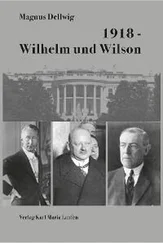Suddenly, and much to his surprise, the hatred in his father’s eyes disappeared. Were the pills kicking in already? They couldn’t be, it was too soon for that. And then something happened that Tobias couldn’t understand, that messed with his emotional compass. Gerhardt’s eyes welled up and out spilled tears of sadness and of loss; first one, then another one and then a thin, constant trickle.
His son, momentarily overwhelmed by a never previously experienced pity for his father, placed one hand on Gerhardt’s head, another on his shoulder. Tender, unfamiliar instincts drove him. He wanted to reach out and hug Dad in spite of the wheelchair that made embraces awkward if not downright impossible. He stepped behind him, laid his head on Gerhardt’s shoulder and found this position no less unusual than a frontal hug.
‘Oh, Dad. I’m sorry I asked,’ he said, not because it was true but because he wanted to say something reassuring.
Behind his father’s silence there was a bottomless well of sadness and an invisible force pulled Tobias inside, dragged him down into the depths of it, nearly under. He fought back the urge to join in the spillage of tears. He was not accustomed to showing himself raw, least of all in front of his father.
He had never seen Dad cry.
But what about the other way around —when was the last time Dad had seen him cry? He couldn’t remember. It had been a long time ago, that much was sure, but when he looked his father in the eye to ask him as much, it was too late. The moment had passed; the drugs had taken him far away.
*
One hour later Tobias had calmed down after the muted emotional outbreak. He knew that his father would never share any of the traumatic memories that obviously plagued him with his least favourite, arse-wiping son. If Gerhardt could talk he would surely curse the day that brought him into this close physical dependency on Tobias. Why not his golden boy, why couldn’t it be Albert?
Of course Albert would never stoop this low; Gerhardt hadn’t brought up Albert to be a bottom-wiper, an emasculated male nurse. If his brother was here instead of Tobi, Dad surely would have spilled the beans, would have told him everything they always wanted to know about Mum, about why he stopped working, and everything else that merited being passed on.
There were a number of things that Tobias wished he understood. Why did they fire Dad? Why didn’t he hire a wet nurse or a nanny and get himself another position? It would have made financial and professional sense. Why hadn’t he remarried, provided a substitute mother for his offspring? As far as Tobias was aware, there had never been another woman in his father’s life after Tatjana. Not a one.
Tobias knew that Albert cared little for these things, just wasn’t interested. Why should he be? Albert’s life was complete, perfect. He didn’t feel like Tobias did, didn’t suffer from emptiness, self-loathing or loneliness. Albert was Albert and never aspired to be anybody else.
An idea dawned on Tobias, a way to find out whatever dark secrets might be lurking in the family closet. Of course, why hadn’t he thought of it before? He’d cut out the middleman; better yet, he’d become the middleman. Rather than talking Albert into coming up to the Ith – which he rarely ever did – in the hope that Dad would be willing and lucid enough to talk to him, he, Tobias, would become Albert. He wouldn’t have to rely on anybody’s unpredictable timetable and he’d get the juice fresh from the source. And at the same time he would have fun, enjoy being the ‘real’ Albert again, the man he had tried and failed to become when he was away at university, when he’d toiled under the delusion that he could be somebody who was liked and loved for his own sake.
Yes, it was a good plan. Even the timing fit. The Albert Hoffmanns were going away for a week to Sylt, a small German island in the Baltic Sea. Cordula had graciously asked Tobi to water their garden while they were away. That’s when he’d do it.
Tobias didn’t and couldn’t have reckoned with the fact that the nature of the Hoffmann family secret he would manage to elicit from his father was so devastating, so far-reaching in its consequences that it would push him over the edge.
Earlier, on the night of the day that Gerhardt had shed tears in front of Tobias — August 16, 1977 — Tobias had listened to the news on the radio and learned that Elvis Presley, the King of Rock and Roll, had passed away. For reasons beyond his immediate comprehension he bawled like a baby, cried himself to sleep. It was raining heavily. He didn’t know it then, but on that day an amorphous seed was sown into his mind. It inspired an abstract plan that he wouldn’t fully understand for years. That’s the moment things really went wrong for him.
But we’re jumping ahead.
*
One year later the radio played a couple of Elvis tunes to commemorate the first anniversary of his passing and Tobias remembered the portentous conversation with Dad. It was raining again. On the following Sunday morning, Tobias pushed Gerhardt up and down Segelflugstrasse. The old man’s need for fresh air taken care of, his son was free to set off on a stroll to enjoy the one luxury the Ith provided — proximity to nature. No matter how many times Tobias walked among the spruce and beech trees, he always discovered something new and beautiful. The paths were still muddy but he didn’t mind. He knew he had his best ideas when he was alone, hiking through the woods. His thoughts took off on tangents with almost cosmic reach.
Suddenly he remembered the last time he had cried. He didn’t recall the exact year or his age at the time; it had to be in the late 1950s, when he was ten or thereabouts, maybe a year younger. Gerhardt had taken the boys on a trip to Bad Nauheim, a spa town where he had been sent to rest after Tatjana’s death on doctor’s orders. He’d returned to visit an old friend – what was his name again? The boys had found the visit particularly boring. They’d had to sit quietly at the lunch table for hours, listening to particularly dull conversations without interrupting and without peers to play with. Finally a digestive walk was suggested and the twins had happily accepted.
After walking through the town for a while, Albert needed to go to the toilet, and urgently. Uncle Willie — that was the name of Dad’s friend who, incidentally, had liked Albert better than Tobias, too — took the boy into a nearby restaurant.
Left momentarily alone with Gerhardt, Tobias noticed a small but rapidly growing mob of young people across the street. Soon a journalist joined them and started taking pictures.
‘Look, Dad,’ Tobias said.
Flashlights went off, the crowd continued to swell and suddenly a man in US army fatigues separated from the group and ran across the street toward the boy and his father. He was in his early twenties with dark hair and a somewhat pasty complexion. The man dashed past them and disappeared in a small lane next to the restaurant Albert and Uncle Willie had entered minutes earlier.
Dad was visibly impressed but tried to hide his emotions behind a sarcastic snigger.
‘I bet you one mark you don’t know who that is, son.’
Tobias looked up at him, proud to be sharing the moment with his father. He sensed that something monumental was happening, something that he failed to comprehend. Why would Dad risk good money, a whole mark? It didn’t matter. He was alone with Dad. Best not to disappoint him.
‘Who is it? Who is it?’ he said.
‘That man, my son, was only the King of Rock, Elvis ‘the Pelvis’ — Presley,’ Gerhardt said. ‘Wait till I tell the guys. They won’t believe me.’
Tobias pondered immediately which ‘guys’ his father was referring to and felt instantly jealous of them. Could they be Uncle Willie and Albert? Either way. ‘Elvis the Pelvis’ meant absolutely nothing to him, and he said as much.
Читать дальше












